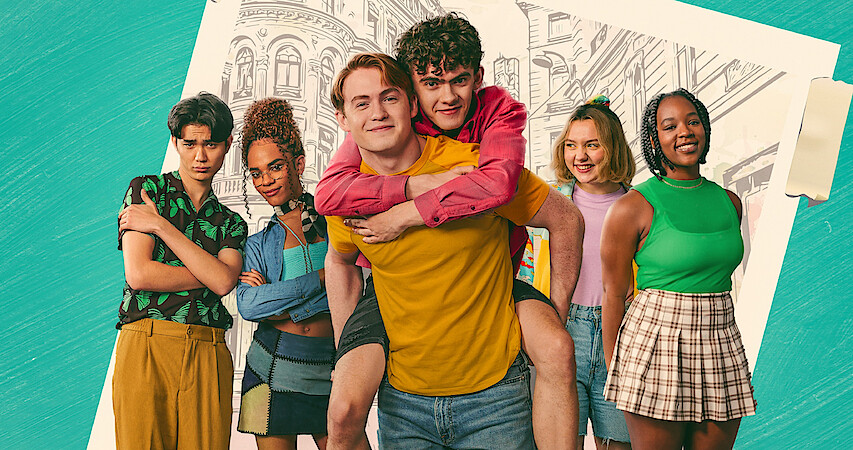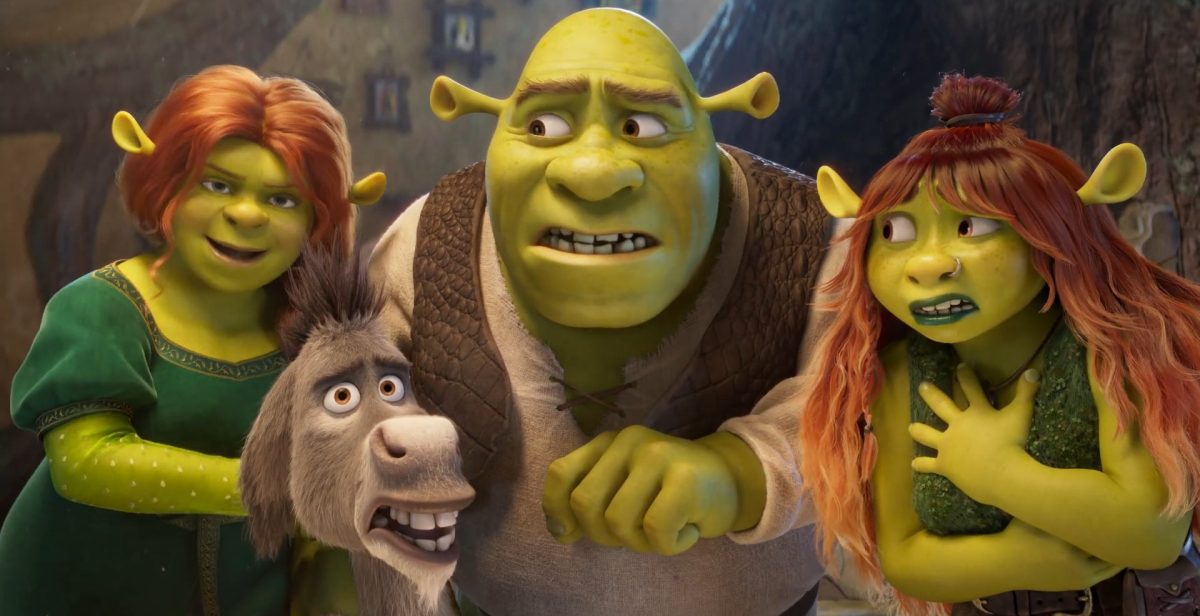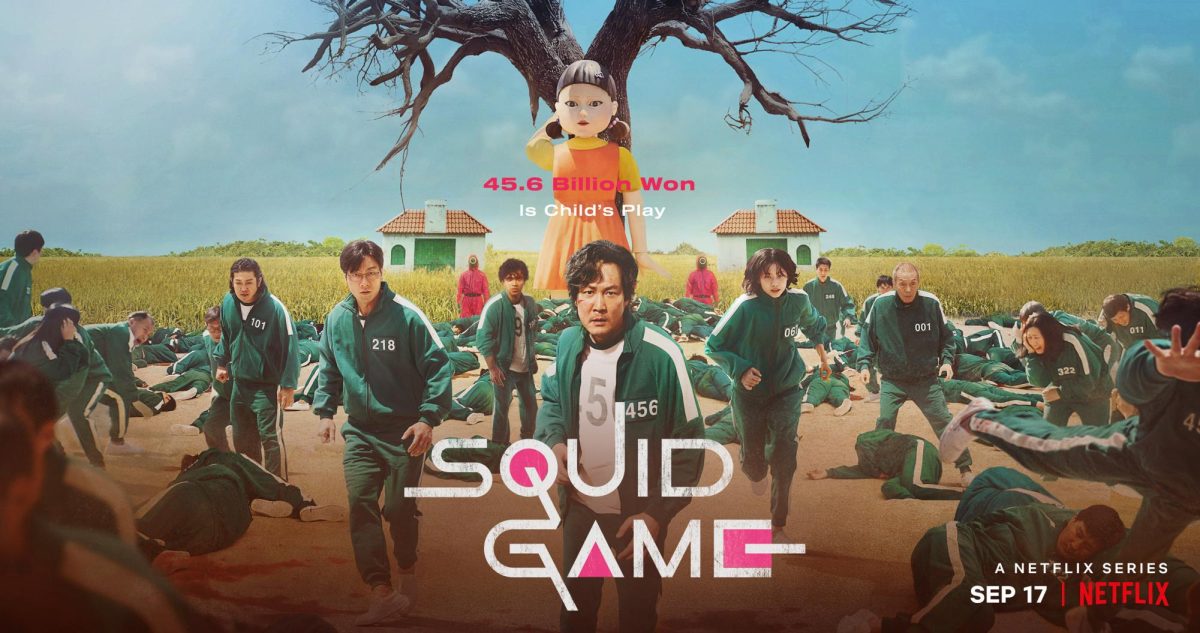*trigger warning: ED, SH*
The air is buzzing with excitement as fans of the Netflix series, Heartstopper, eagerly await the release of the newest season. On Thursday, Oct 3rd, 2024, Heartstopper Season 3 will be available to watch on Netflix! The premiere of the second season was August 3, 2023, so fans have been waiting for over a year to receive this season, and they are more than ready to bust out a bowl of chips and candy and binge-watch!
As much as the audience finds comfort in the sweet high school romance and has grown to love and appreciate the characters, it is important to remember that Heartstopper addresses a number of serious topics. Viewers saw a bit of this difficult content in season 2 and are expecting another increase in season 3. !Possible spoiler alert!
The end of season two left viewers feeling all sorts of emotions when one of the main characters, Charlie Spring, opened up about some of his internal struggles: eating disorder (ED), self-harm (SH), and mental health (MH). These are intense topics, so it is important to break them down individually to gain a fuller understanding. This series addresses too many subjects to cover in just 1,000 words, so only the ones that are predicted to be distinctly relevant in the third season will be properly analyzed.
As listed above, Charlie struggles with an ED, his MH and SH. Season two grazed the surface of these topics, but based on the season 3 trailer (Link to season 3 trailer) and the show’s consistency in staying true to the original graphic novels, they are definitely going to be a focal point of the third season. In the fifth episode of the second season, Charlie tells Nick Nelson, his boyfriend, about his eating disorder. Throughout the second season, there are recurring references to his ED. In the high school age bracket, eating disorders are scarily common. Contrary to popular belief, they are not always rooted in physical insecurity; they can also be due to the eating habits of influential figures, attempts to be in control of an aspect of one’s life, or as a symptom of several mental health disorders: depression, anxiety, obsessive-compulsive disorder, trauma, etc. Especially because of these connotations, most people suffering from eating disorders do not make it public knowledge. This is particularly true for boys and men suffering from EDs, as their experiences are often dismissed when they try to bring attention to it. Charlie’s character is especially significant as it provides representation for an underrepresented community. Furthermore, Charlie Spring finally opened up about his mental health and relationship with SH in the final episode of S2. Although mental health has become more of a priority in schools and the workplace in recent years, conversation about severe MH issues and SH is still limited, so many people are left feeling isolated in their experiences. Including realistic depictions of a figure with these experiences is incredibly valuable to countless people. If Heartstopper is going to continue on its track of staying true to the graphic novels, then these topics will become a core part of the next season. It will inevitably make the third season much more difficult—and possibly triggering—to watch than the two prior seasons, but the content will be deeply valuable for its audience.
Now, onto a slightly less saddening topic: queer relationships. The entire basis of Heartstopper is providing representation for all sorts of individuals in the LGBTQIA+ community. As the world becomes a more progressive place, queer representation increases, but very little media includes the physical side of a queer relationship; most media that includes a queer couple sweeps that aspect of the relationship under the rug, as they are either not prepared to increase the maturity of the show, or they are only including said queer relationship so they can stamp the diversity label, but are not prepared to get into the nitty gritty of a queer relationship. Not only is representation limited, but so is education. The sex-ed class is not up to par with queer sex than it is with heterosexual sex. Therefore, any reference to queer intimacy is of great significance to the community. It is confirmed that Heartstopper season 3 will address queer sex. The main couple, Nick and Charlie, will explore their sexuality together in this season. Not only is it their first time being physical together, but it is their first ever exposure to an intimate relationship, which will make the few scenes more accessible for viewers. In addition to the physical relationship between Nick and Charlie, there is a growing relationship between Tao and Elle, two of the other main characters. Elle is a trans-female teenager, so their scenes address the dysphoria that trans teenagers, and all trans individuals, can experience when exploring the physical side of a romantic relationship. Like most of the topics discussed so far, this is not content that has been ‘popularized’ in mainstream media, so finally having such a clear role-model and representation is monumental for the trans community.
Ultimately, the point is to get excited for the third season, but it undoubtedly encourages critical thinking and consideration of the fact that these are very real and very common experiences. It is fantastic that such a popular streaming service (Netflix) finally has a mainstream TV production that addresses these ‘taboo topics’. For personal enjoyment, as well as an opportunity for education, representation, and understanding, check out Netflix on Thursday, October 3rd, and start watching!









A.G. • Oct 1, 2024 at 11:07 pm
As someone who is unfamiliar with the Heartstopper series, this article was very helpful as it informed me about pertinent social issues this franchise discusses. The article’s mention of the social stigma against intimacy in queer relationships sheds light on a very real prejudice that is not mentioned enough! Thank you Kingsley voice and thank you Ms. Donnelly for such an informative article